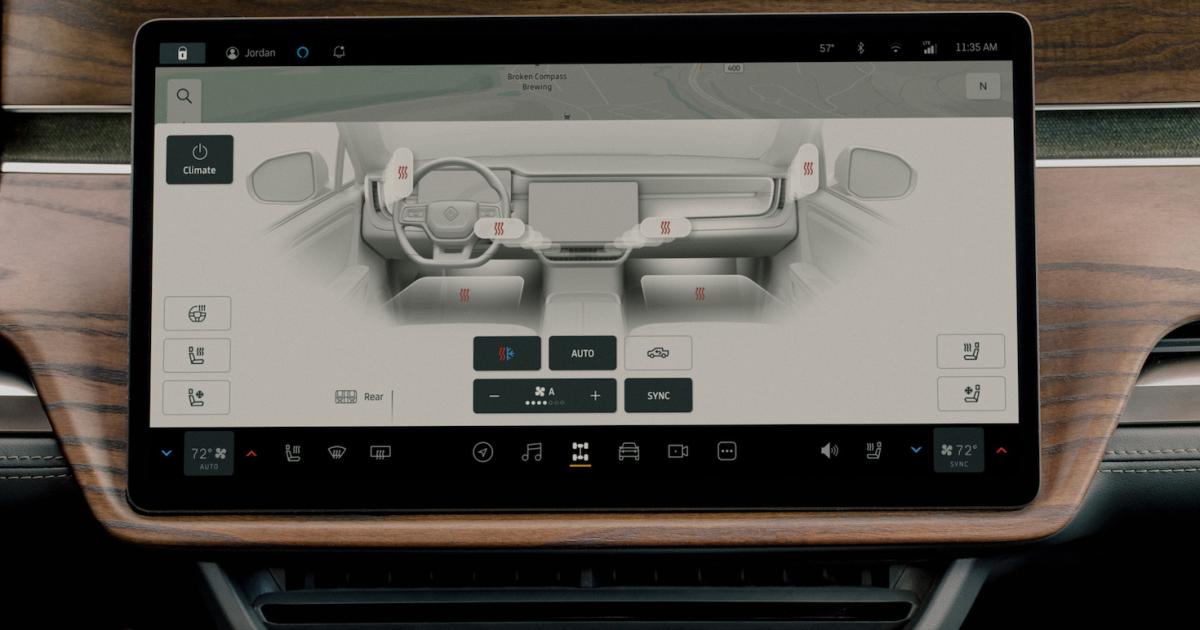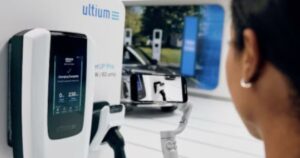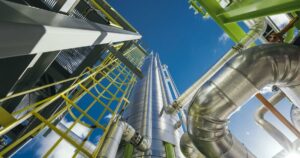
In a 1990 interview, Steve Jobs describes consumer loyalty and a product’s quality as measured not by the number of marketing campaigns using the word quality or company awards, but instead by the sheer strength of the product itself. Jobs’ message directly applies to the EV industry today.
EV demand in 2023
Supposedly, U.S. EV demand is simmering and certain automakers are complaining. While sales data shows EVs continue to sell, maybe just not at the pace expected by automakers, something is actually smoking under the hood and changing the automotive landscape.
U.S. electric and plug-in hybrid vehicle sales topped 1 million in September 2023. Jesse Jenkins from Heatmap recently wrote a piece looking at EV demand growth and pointed out that the story is not simmering demand but reactions to Tesla’s defensive price war that’s squeezing incumbents and high interest rates.
The ‘new’ EV age
There’s even more to the story here than what Jenkins points out — it’s just not as apparent yet in the sales numbers.
Software is and will be the single greatest defining feature in a vehicle that dictates who wins consumer interest and recurring sales. As a result, who is considered a relevant automaker even in five years’ time will be very different; “Squawk Box” even touched on how relevant GM and Ford will be in the future.
After years of promises about dominating the EV market, Ford’s and GM’s realities have looked very different, leading them to pull back EV projections. This comes after months of United Auto Workers protests. But it’s not just them; other automakers are also struggling, calling the EV market a “brutal space.” Even in Europe, VW continues to scale back production.
Corey Cantor, senior associate at BloombergNEF, eloquently summarized what’s what: “It’s a new period, and just because you’ve been successful in the previous age doesn’t guarantee your right to be a market leader in the new EV age.”
Software is the new car ‘soul’
The traditional ‘soul’ of a car, centered on a roaring engine and marginal model year improvements, is officially nearing its end. Now software is the new ‘soul,’ centered on electrification. And for all the EV options available today and the manufacturing capabilities among legacy automakers, only Tesla, Rivian and a few others (a) have understood this concept and (b) are acting on it.
“In terms of who is successful in the U.S. EV transition, it’s Tesla, followed by a giant gap and then maybe you can say Rivian, Hyundai/Kia and Volvo are also moving in the right direction,” Cantor said, noting that the Big Three automakers (Ford, GM and Stellantis) have a lot of challenges to get over to be successful. This new period that Cantor speaks about is already upon us — let’s focus on Tesla and Rivian to explain it further.
To be clear, Tesla and Rivian have made missteps in the past. Recently, among several consumer issues, Tesla has been experiencing consumer complaints about its insurance program. However, even among all the issues, the Tesla Model Y became the best-selling vehicle globally in August, and Rivian continues to show strong improvements in production and growth of sales, with Cantor telling me, “Rivian’s scaling up is starting to look successful, and that’s something we see in the data.”
Legacy automakers, which have traditionally relied on Tier 1 suppliers to help mesh together a software experience for decades, recognize the value of software in this new age but are slow to implement it, and that is surely impacting EV sales today. Instead, Tesla and Rivian, center the vehicle experience on software and build it themselves ground-up or acquire companies and iterate on the software for their vehicles. Focusing on software allows them to optimize for what makes a good electric vehicle for their customers. And as the entire automotive industry will soon be only electric, anyone building and selling vehicles who understands these concepts will be a leader in the space.
“What defines a good product today versus just yet another vehicle is really software, and that is becoming one of the most competitive assets overall,” Wassym Bensaid told me on a call. Bensaid is Rivian’s vice president of software development and recently did a deep dive with MotorTrend on software’s role in automotive. “We have been very intentional about building our own stack from the ground up, and have the benefit of a clean sheet approach…”
The software experience is what distinguishes a vehicle that gains customer loyalty from one that doesn’t, and it can almost compensate for other areas where a consumer might not be happy with the vehicle. Software improves the driving experience, the braking, the battery management, the acceleration and performance of your vehicle. And for EVs, software is what defines the charging experience, aside from the physical hardware of the charging station. It all works seamlessly to make the driving experience for an EV better than for an internal combustion vehicle.
Juan Muldoon, partner at Energize Capital, a climate software investment company scaling sustainable technologies, recently touted the importance of software in automotive, describing it as “essential for enabling the EV transition.”
Take my recent example of renting a vehicle from Hertz in San Francisco. I knew I was going to rent electric and decided to rent a Tesla because I knew I could expect a clean and easy user interface, great driving and a charging experience that actually worked, was fast and abundant — and that’s exactly what I got.
Cantor reinforced these expectations by noting that a good EV experience involves the battery, the charging, the vehicle build and design and most importantly, the software. “The EV, as a whole, is the sum of those different experiences,” said Cantor.
Troubles still exist
However, software is not a magic solution, and it’s not without its troubles. Even for Tesla and Rivian, software has not been perfect.
As an example, recently Rivian mistakenly sent an over-the-air software update to many of its customers causing widespread issues for drivers who updated their vehicle, almost bricking the car. To its credit, Rivian resolved the matter within hours, but the situation raises concerns about how much control software now has over the use of a vehicle in this new age.
At the end of the day, what defines a good vehicle and who leads the automotive industry has changed. Those who not only realize this change but also act quickly on it will be rewarded with market dominance and growing sales.
- SEO Powered Content & PR Distribution. Get Amplified Today.
- PlatoData.Network Vertical Generative Ai. Empower Yourself. Access Here.
- PlatoAiStream. Web3 Intelligence. Knowledge Amplified. Access Here.
- PlatoESG. Carbon, CleanTech, Energy, Environment, Solar, Waste Management. Access Here.
- PlatoHealth. Biotech and Clinical Trials Intelligence. Access Here.
- Source: https://www.greenbiz.com/article/software-now-soul-vehicle
- :has
- :is
- :not
- :where
- $UP
- 1
- 7
- a
- About
- abundant
- acceleration
- Act
- acting
- actually
- After
- age
- All
- allows
- almost
- already
- also
- among
- an
- analysis
- and
- Another
- anyone
- apparent
- applies
- ARE
- areas
- AS
- aside
- Assets
- Associate
- At
- AUGUST
- auto
- automakers
- automotive
- automotive industry
- available
- awards
- b
- back
- battery
- BE
- became
- because
- becoming
- been
- benefit
- Better
- Big
- build
- Building
- but
- by
- call
- calling
- Campaigns
- CAN
- capabilities
- capital
- car
- causing
- Center
- centered
- certain
- challenges
- change
- changed
- changing
- charging
- clean
- clear
- Climate
- comes
- Companies
- company
- competitive
- concept
- concepts
- Concerns
- considered
- consumer
- continue
- continues
- control
- could
- credit
- customer
- Customer Loyalty
- Customers
- data
- day
- decades
- decided
- deep
- deep dive
- defensive
- Defines
- defining
- Demand
- describing
- Design
- Development
- dictates
- DID
- different
- direction
- directly
- dive
- Doesn’t
- Dominance
- dominating
- drivers
- driving
- easy
- Electric
- electric vehicle
- enabling
- end
- Engine
- Entire
- Ether (ETH)
- Europe
- EV
- Even
- evs
- exactly
- example
- expect
- expectations
- expected
- experience
- Experiences
- experiencing
- Explain
- FAST
- Feature
- few
- five
- Focus
- focusing
- followed
- For
- Ford
- Francisco
- Free
- from
- further
- future
- Gains
- gap
- get
- giant
- GM
- going
- good
- got
- great
- greatest
- Ground
- Growing
- Growth
- guarantee
- happy
- Hardware
- Have
- help
- here
- hertz
- High
- hood
- How
- However
- HTTPS
- Hybrid
- i
- impacting
- implement
- importantly
- improvements
- improves
- in
- industry
- instead
- insurance
- Intentional
- interest
- Interest Rates
- Interface
- internal
- investment
- involves
- issues
- IT
- ITS
- itself
- Jobs
- just
- landscape
- leader
- leading
- Leads
- Legacy
- Look
- looked
- looking
- Lot
- Loyalty
- made
- magic
- make
- MAKES
- management
- manufacturing
- many
- Market
- Market Dominance
- Market Leader
- Marketing
- Marketing Campaigns
- Matter
- maybe
- me
- measured
- mesh
- message
- might
- million
- model
- months
- more
- most
- moving
- much
- my
- nearing
- New
- Newsletter
- node
- noting
- now
- number
- numbers
- of
- Officially
- on
- ONE
- only
- Optimize
- Options
- or
- Other
- Others
- our
- out
- over
- overall
- own
- Pace
- partner
- past
- performance
- period
- physical
- plato
- Plato Data Intelligence
- PlatoData
- points
- president
- previous
- price
- Product
- Production
- Program
- promises
- Protests
- quality
- quickly
- raises
- Rates
- reactions
- realities
- realize
- really
- recent
- recently
- recurring
- relevant
- Rent
- result
- Reuters
- rewarded
- right
- rivian
- Role
- s
- Said
- sales
- San
- San Francisco
- say
- scaling
- seamlessly
- see
- sell
- Selling
- senior
- sent
- September
- several
- sheet
- show
- Shows
- sign
- single
- situation
- slow
- Smoking
- Software
- software development
- software update
- solution
- something
- Soon
- Soul
- Space
- Speaks
- stack
- Starting
- station
- Steve
- Still
- Story
- strength
- strong
- Struggling
- successful
- sum
- suppliers
- surely
- sustainable
- Technologies
- telling
- terms
- Tesla
- than
- that
- The
- The Future
- their
- Them
- themselves
- then
- These
- this
- those
- three
- tier
- time
- to
- today
- together
- told
- topped
- touted
- traditional
- traditionally
- transition
- transport
- u.s.
- under
- understands
- understood
- United
- Update
- updated
- upon
- us
- use
- User
- User Interface
- using
- vehicle
- Vehicles
- Versus
- very
- vice
- Vice President
- volvo
- vw
- want
- war
- was
- we
- What
- which
- while
- WHO
- whole
- widespread
- will
- Wins
- with
- within
- without
- Word
- worked
- workers
- works
- WSJ
- year
- years
- yet
- you
- Your
- youtube
- zephyrnet






